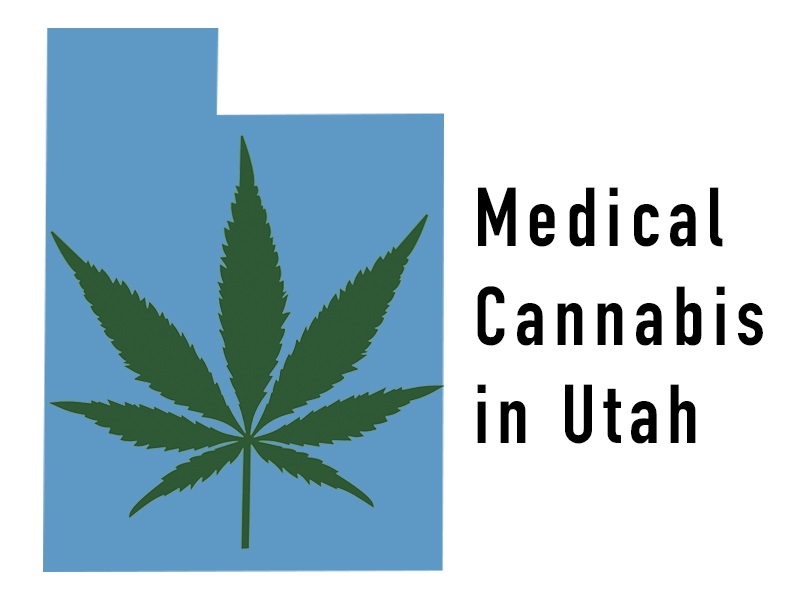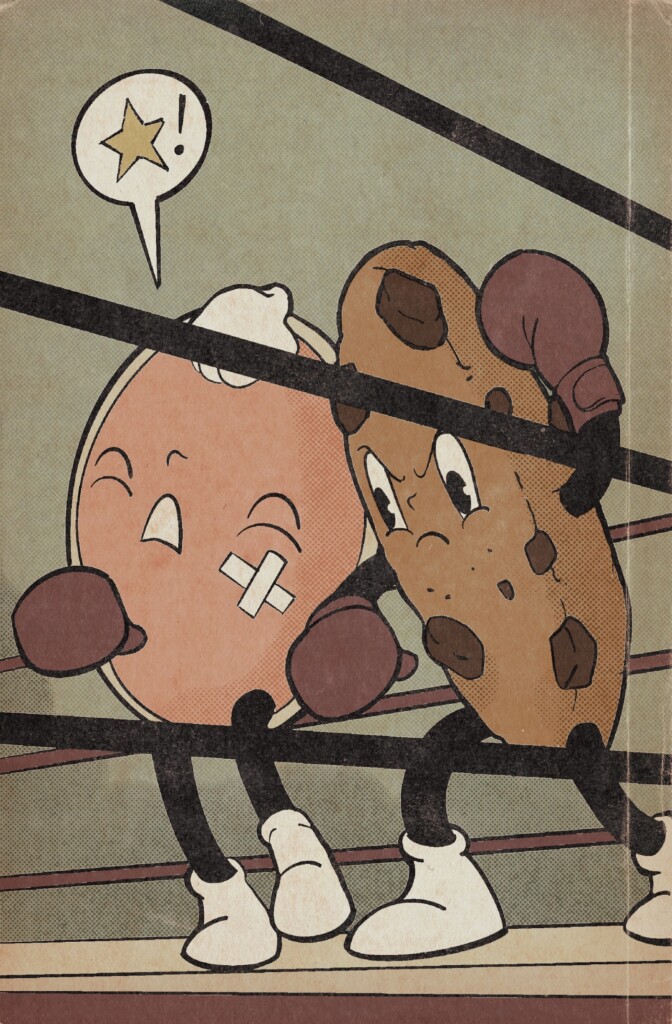 This November Utahns have one major issue on the ballot that could dramatically alter our extreme-red, hyper-conservative state: the legalization of medical marijuana. The ballot initiative Proposition Two seeks to allow residents to utilize marijuana with a doctor’s recommendation. Currently 66 percent of Utah voters support this initiative. This would also allow for licenced growers to produce medicinal pot in Utah (more on this later).
This November Utahns have one major issue on the ballot that could dramatically alter our extreme-red, hyper-conservative state: the legalization of medical marijuana. The ballot initiative Proposition Two seeks to allow residents to utilize marijuana with a doctor’s recommendation. Currently 66 percent of Utah voters support this initiative. This would also allow for licenced growers to produce medicinal pot in Utah (more on this later).
We thought we would should examine the key political leaders’ comments, the fine print in the legislation, and see how this historic proposition might impact Utah communities and local entrepreneurs.
So How Did We Get Here?
Going back 3,000 years ago, the Chinese were extensively using medicinal marijuana. It’s medicinal properties were used widely in the United States in my drugs in the nineteenth century up until the early twentieth century. It’s very likely Mormon Pioneers used marijuana enhanced tonics and tinctures for all sorts of ailments.
Just sixty years ago an article written in the Salt Lake Telegram, published May 20th, 1949 tells how A University of Utah researcher had found that marijuana has cured half of an epileptic patient study who used marijuana in a controlled study. But this research, while ending up in the paper wasn’t accepted by the pharmacology department at the University for further research because apparently a “synthetic marijuana” was used not the actual plant, which would have been in violation of United Nations Narcotic commission. At that time (before the DEA) they prohibited the production of the “marijuana plant”. With the limited amount of time we were able to research this we do not yet know what happened to Dr. Davis’ research and why the such promising findings were never able to see the light of day.
Just six years ago, Mitt Romney, while on the campaign trail, said, “Marijuana is dangerous for young people and communities. It’s a gateway drug and legalization would be bad for the country.” Most Utah conservatives agreed.
Today, Romney is taking a different stance. He believes marijuana needs to be reclassified by the DEA so that the FDA can be involved in testing and distribution. This way legitimate medicinal use of marijuana could be allowed in Utah and across the United States.
What changed Romney’s mind as well as the minds of so many conservatives?
It started with the indisputable evidence that CBD oil (a non-psychoactive cannabidiol from marijuana) has on patients suffering from epilepsy. A YouTube video demonstrates how CBD helps 87% of epileptic patients, especially children. The before and after demonstration, case after case, cannot be disputed. This began mainstream acceptance followed by the many patients who found relief for anxiety, glaucoma, depression, pain and Parkinson’s all from marijuana use.
Still, Romney doesn’t support Proposition Two, his opponent Democrat Jenny Wilson does; Romney is currently leading in the polls by 26 points over Wilson.
Romney believes that the Utah State Legislature should handle the issue. Many LDS Republicans echo this sentiment, which could be interpreted as, let the LDS majority-ruling State Legislature determine what is best with marijuana policy as they currently administer state alcohol policy.
Romney specifically disagrees with Proposition 2’s initiative that would allow for private dispensaries. This, he says, would lead to “corner stores offering marijuana-laced brownies and gummies and an opening up of marijuana in schools.” Romney believes medicinal marijuana should be regulated like any other drug prescribed by doctors and regulated at pharmacies, available at places like Walgreens rather than ma and pa shops. Further, he believes that the State Legislature should act quickly and convene a special session to address the issue, which they will be doing shortly after the November election. They have even started on the bill, which can be read online—the Libertas Institute, which has been fighting for a medical marijuana bill for the past five years, is writing the legislation. The interesting part to note in the bill they are crafting is that any grow facility will be indoors and the grower must have liquid assets of $50,000 to be licensed and accepted. This provision will certainly rule out most small farms from competing in this sure-to-be highly lucrative industry.
Currently, many Utahns visit the neighboring states of Colorado and Nevada to purchase their medicinal and recreational marijuana. Both states have legalized recreational and medicinal marijuana use in addition to 29 other states. Utahns also purchase from Utah’s black market, benefiting criminals and the Mexican drug cartel. This clearly isn’t good for Utah’s government, tax payers, or the criminal justice system.
It’s clear that since legalizing marijuana, Colorado has seen a boon to tourism, immigration, and tax revenue. Here in Utah, the political and cultural climate is quite different.
What Has Taken Utah So Long?
Today there is far more at stake than there was in 2012, when Romney took a hard-line. Marijuana is still classified as a schedule 1 drug by the DEA—on par with ecstacy and heroin. This schedule prohibits the testing of pot for medicinal use at the federal level. Incredibly, the DEA can still raid legal pot farms in California. Still, it’s becoming increasingly clear that there are many undisputed medicinal properties of marijuana. Patients suffering from glaucoma see results in lowered IOP for up to four hours. Patients receiving chemotherapy see results in both pain relief and increased appetite. They also experience far fewer side effects than narcotics with opioids. There is also an increasing amount of evidence that when the EC system (endocannabinoid system) in our body is activated, children suffering from autism improve in their cognitive abilities. One of the most interesting, yet still non-mainstream validated studies, reports that cancer patients when exposed to marijuana treatment respond in a similar manner to chemotherapy. Studies at Complutense University in Madrid, Spain, found efficacy in the treatment and reduction of cancerous cells using THC. In Spain, Microbiologist doctors have been testing the anti-tumor effects of canibinoids for over 15 years.
While these claims are not validated by American scientific studies or journals, patients say that the evidence is clear that a nationwide legalization and removal from DEA schedule 1 list makes sense.
We have personally witnessed the results of adding a few drops of CBD oil to our epileptic dog’s food. Our Irish Setter Joey hasn’t had a seizure since we started giving him a nightly regimen of CBD. CBD has been a miracle for families of children suffering from epilepsy. And for this reason CBD oil was legalized in Utah in 2014, and is now legal in all but two states. Still, the greater-Utah community is hesitant for a full legalization, for a few good reasons.
The Clear Dangers of Recreational-Use THC
While it’s certain that cannabis has medicinal value, the impact of heavy usage of smoking pot recreationally on cognition is clearly negative, according to all scientific evidence. While it is impossible for a person to overdose on marijuana, heavy, regular marijuana use, especially those who consume at a young age, can experience negative side effects. According to the National Institute on Drug Abuse, rats exposed to THC before birth had specific problems with learning and memory tasks later in life. Longitudinal studies demonstrated that cognitive abilities can be impaired by the overuse of marijuana. Impairments and reduced IQ depend on users age and level of consumption.
This problem has been exacerbated in young adults due to the increased potency of pot. Because of the selective breeding of cannabis, THC levels have increased sixfold in the average joint in the past ten years. This makes pot for teens far more dangerous. Besides the impact it has on lowering IQ levels, it also affects how the brain stores and releases dopamine. A “high” is caused by a dopamine release in a similar way dopamine is released from cocaine. A high from marijuana is not as powerful or as addictive as cocaine, a methamphetamine, but if consumed regularly, THC levels in the brain’s chemistry adapts with less regular dopamine production, causing the user to become reliant on THC to feel normal. Everyone is likely familiar with a person who has smoked too much weed for far too long. “Potheads” have difficulty keeping jobs and maintaining productivity, so parents and kids must beware of the overusage. According to DrugAbuse.com
“The long-term effects of marijuana can lead to an adverse effect on memory and learning. Those who smoke marijuana consistently when young may experience cognitive impairment as adults even when no longer using the drug. The long-term effects of marijuana can be unpredictable.”
But Marijuana Is Not As Harmful as Tobacco or Alcohol
In many respects this is true, advocates correctly demonstrate that the human body has hundreds of cannabinoid receptors in our bodies and brain, which control our appetite, motor functioning, memory and sleep. Therefore, they conclude we are made to smoke pot and control our health and wellness using it. To a degree, this is true, but we also have receptors in our brains for opioids, which doesn’t validate the regular usage heroin. Still, our perception, mood, memory, and appetite are all influenced by marijuana due to our endocannabinoid ES system, and only one in 10 marijuana users become addicted or dependent, whereas one in three smokers of tobacco become addicted. Cannabis smoked occasionally also doesn’t harm the lungs as much as tobacco smoked regularly. And even the NIH (National Institute for Health) says there is not an increased chance of lung cancer unless the user is a “heavy smoker” (smoking every night).
Still, too much of a good thing can prove bad. Heavy users of marijuana have difficulty in forming memories. Heavy use clearly impairs cognitive abilities (lifehacker.com). But occasional use and legitimate use for medicinal purposes is gaining momentum for legal passage on a Federal level and will likely pass in Utah.
How Much Tax Revenue is Utah Losing By Not Having Legal Marijuana?
So far the tax on marijuana has generated $2.75 billion in revenue to California and $1.56 billion in total tax revenue in Colorado. California realized so much revenue from pot, they decided to increase the tax to help the state and cities rebuild their crumbling infrastructure. But this excessive tax backfired:the added tax led consumers to go back to the black market, and the total tax revenue actually declined, according to the San Francisco Chronicle. California legalized recreational marijuana on January 1, and so far, both tax revenue and the impact on growers has fallen far short of expectations due to heavy-handed government regulations. Still, with the examples of 31 states, our State Legislature should be able to navigate the case studies and see how to best roll out a medicinal program.
It’s clear that it’s now time for Utah to accept the good along with the potential bad of medicinal marijuana. But it’s our hope and belief that it would be best for all Utahns if the legislature allows for local industry, local farmers, and local shops to thrive (as Proposition 2 would allow). This would be a better scenario than Big Pharma and the largest corporate players to thrive, as Mitt Romney and most of the LDS conservatives in Utah endorse. We are pleased that not all of the LDS community is in line with the Church’s stance on the issue—voters should always realize they can think and vote for themselves.
Watch our first episode of Utah Stories podcast where we examine everything you need to know regarding legalization of medical marijuana in Utah.
Weigh in on this very important issue. We would like to hear from you.
Email us or use the contact form below.
———————————-
Editor’s note: Besides the medicinal efficacy of marijuana, it is also becoming increasingly clear that psilocybin mushrooms have properties that could be very helpful for Utahns in our growing crisis in the treatment of depression and anxiety. This is another issue that is very soon to come to the forefront of another article and discussion. We encourage readers to become informed.





